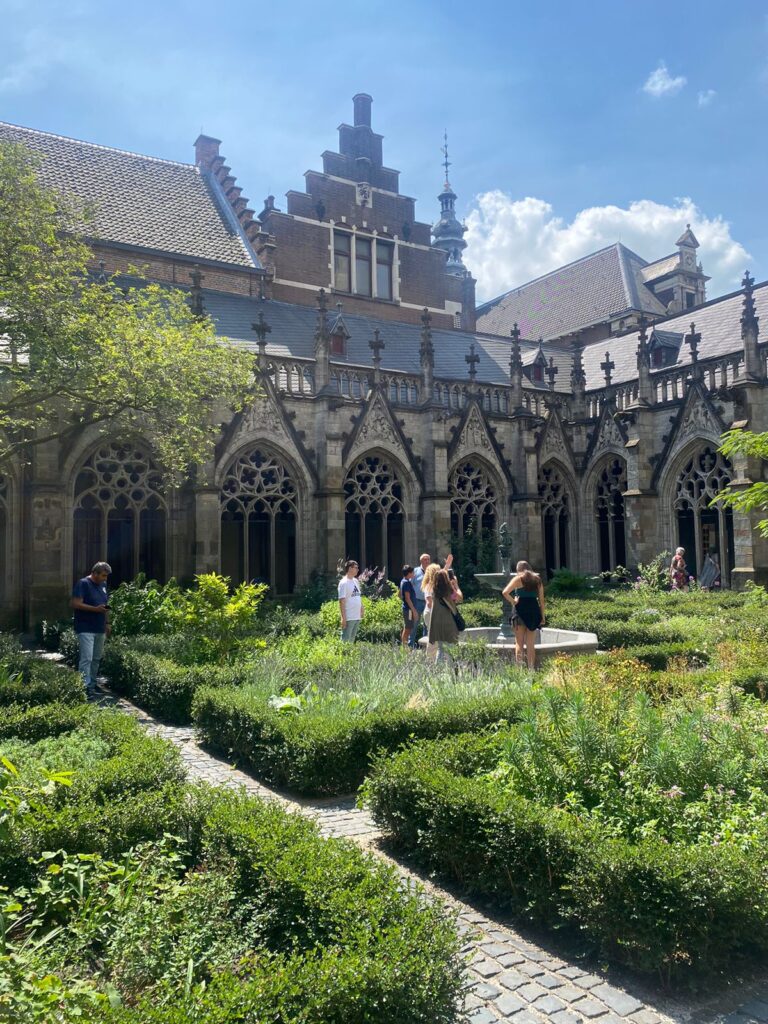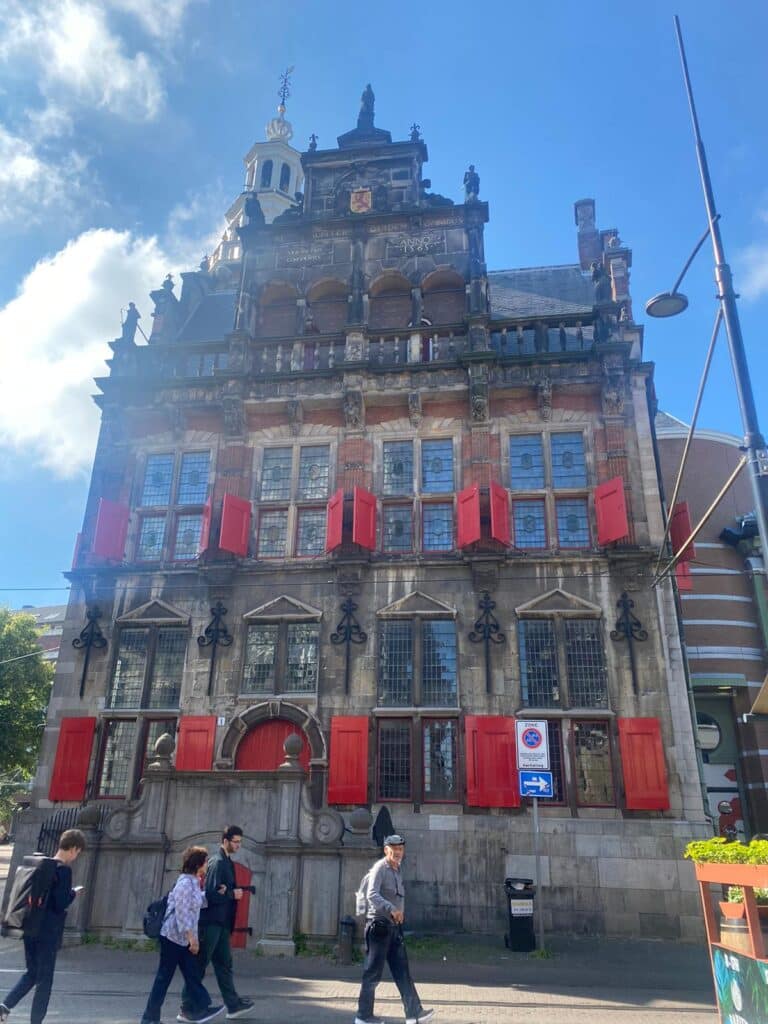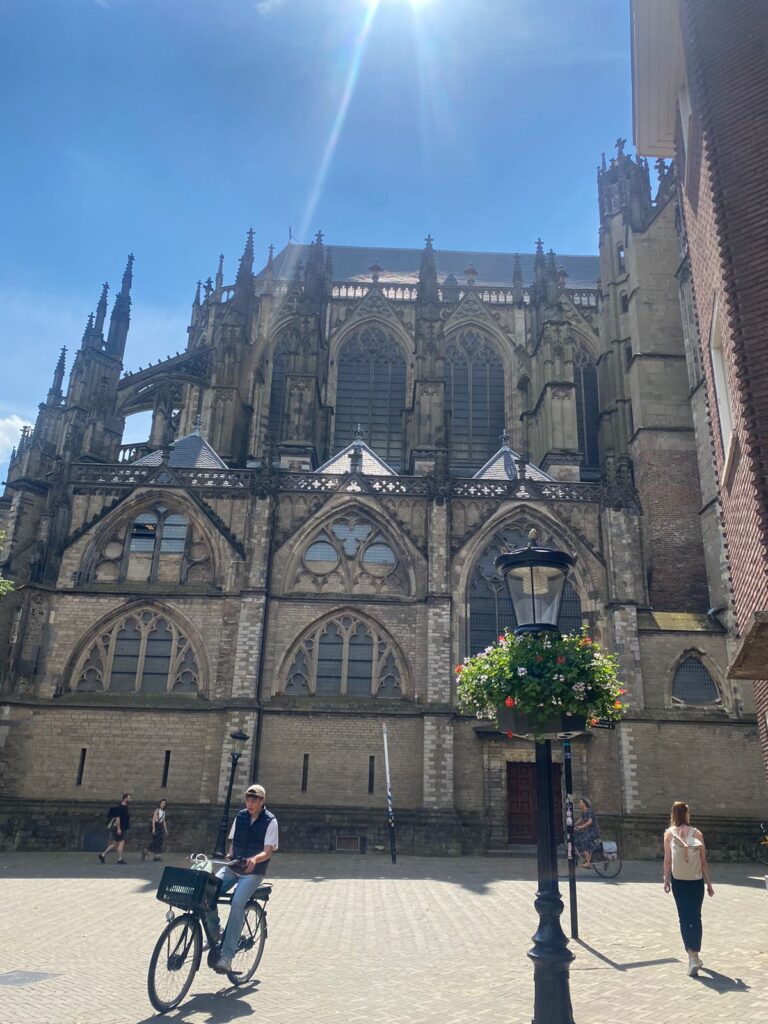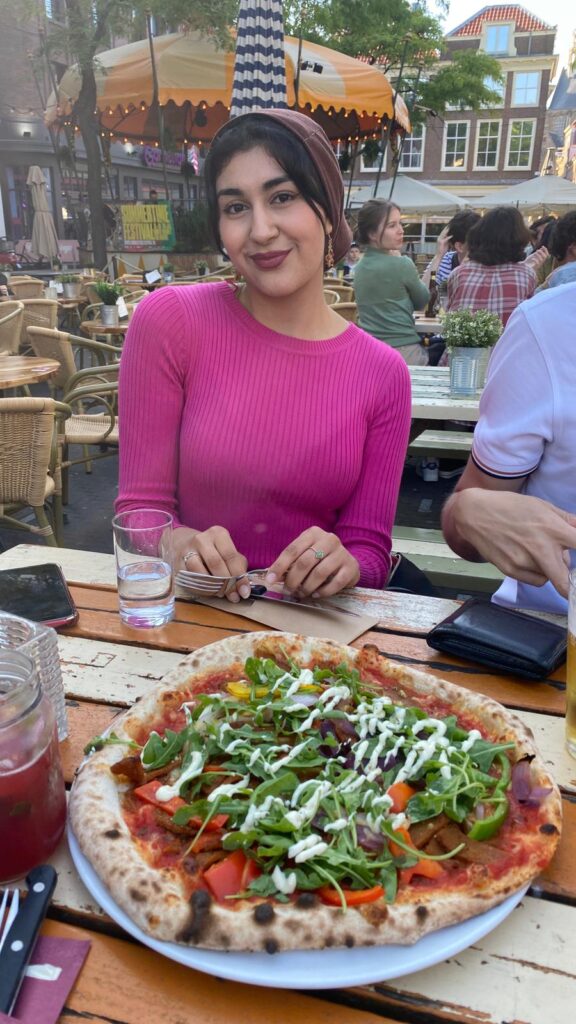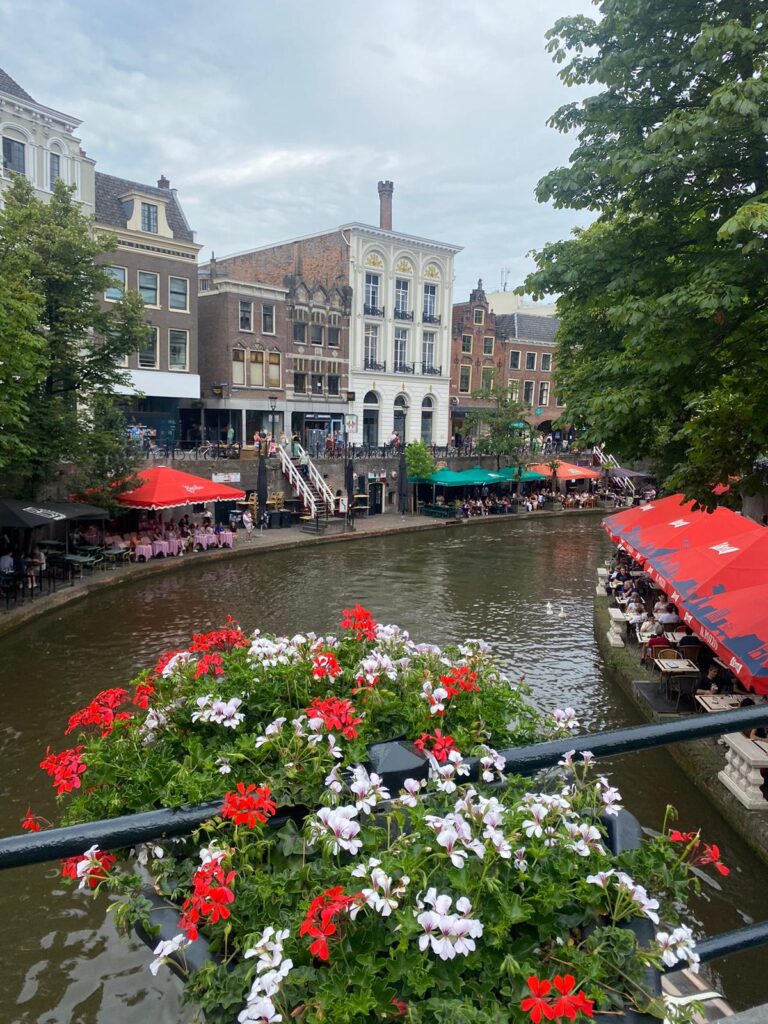For my LEAP Adventure I went to Utrecht, Netherlands in order to attend the Global Power and Technology course in Utrecht University led by Dr Olia Whittaker. This course was broken into five days which overall covered the EU’s approach to standards, AI technological development and patents in the competition law sector.
On the first day we looked at “The EU internal market as a platform for the digital transition” by Professor Sybe de Vries which was about the social dimension of the EU internal market and the interconnection between EU free movement law, fundamental rights and public interests, including environmental, health, consumer and cultural interests. We looked at what resilience meant and should the EUs’ single market change as well as its impact on digitalisation and how we can deal with that. The four methods we focussed on based on the EU’s own analysis was the ‘Role of private actors, Principle of Non-Discrimination, DMA and territorial scope’.
The second lecture of the day was “The many ways to regulate innovation” which seems at first like an oxymoron because the current issue with the attitude towards legal regulations by businesses and entrepreneurs is that it limits and restricts innovation; the notion that these two terms can simply not coexist. However, Dr Olia and her Utrecht co-workers presented how there are different kinds of regulations and not all of them are “command and control regulation”.
The rest of the days were also centred around further interesting lectures coming from different perspectives when it came to the topic of global technology, whether it was the approach taken by tech companies such as Etsi or standard creating NGOs such as ISO. One of the most fascinating days was when we went to the Minister of Interior Affairs in Hague to review the countries approach to standardisation and their importance in implementing European Union Values, helping stabilise and reboot globalisation.
However, our main task was an assignment that we had to present at the end of the week in order to qualify and pass this course. In teams we worked on this assignment which requires us to present ourselves in two groups of lawyers in a mock moot attempt to convince the external Chinese company whether they should or shouldn’t introduce their AI technology into the European market. My area required me to argue why monetising required patents would put the company in further loss.
Why did I choose this experience?
What were the most important things I learnt and how did it impact my future as a law student?
I was very nervous at the start because it turned out that this was a mainly PhD student course, so even though I was selected by Dr Olia as an undergrad, I wasn’t prepared to be the youngest lawyer in the room surrounded by people who had already graduated, done a masters, had a job, and now they were working on and learning how to do the same project as me. I thought I would feel out of place, but actually I got really lucky because for the past few days before arriving in Utrecht I was actually feeling very low about my career and prospects as a lawyer; being in Cambridge made me always feel subpar and inadequate. However, these older and experienced lawyers who came from Prague, Germany, France, Croatia, Italy, Russia etc., changed my thinking by making me realise that law is university is not definitive of my overall value as a lawyer, and that I’m doing enough and can do even better. Dr Marie from the European Commission, who came to review our assignment presentations, sat next to me at dinner after the final day and she was the most established person I met. She had done two bachelors and a master’s and started her PhD at 21 and was now very young and working at a high position in the European Commission. I seemed to look at her and feel like I couldn’t understand how to get there. But she was so kind and told me that “every massive success in life is followed by great loss, you don’t know how much I’ve been rejected in life. Hard work is something that will always pay off”.
Further Work
I was lucky to receive further work experience from this. For example, interning with Dr Olia Whittaker over August as a legal researcher where I reviewed the adoption of ISO regulations by a range of different countries when it came to the sector of Transport of dangerous goods. Quoting my research, “Dangerous goods” (also referred to as hazardous materials in the US) are chemical substances or manufactured products. Since their transportation can pose hazards, it is either strictly regulated or prohibited under certain international agreements. In December I hope to do a two-week legal internship in Prague with Schoenner; one of the largest competition law firms in Europe.
